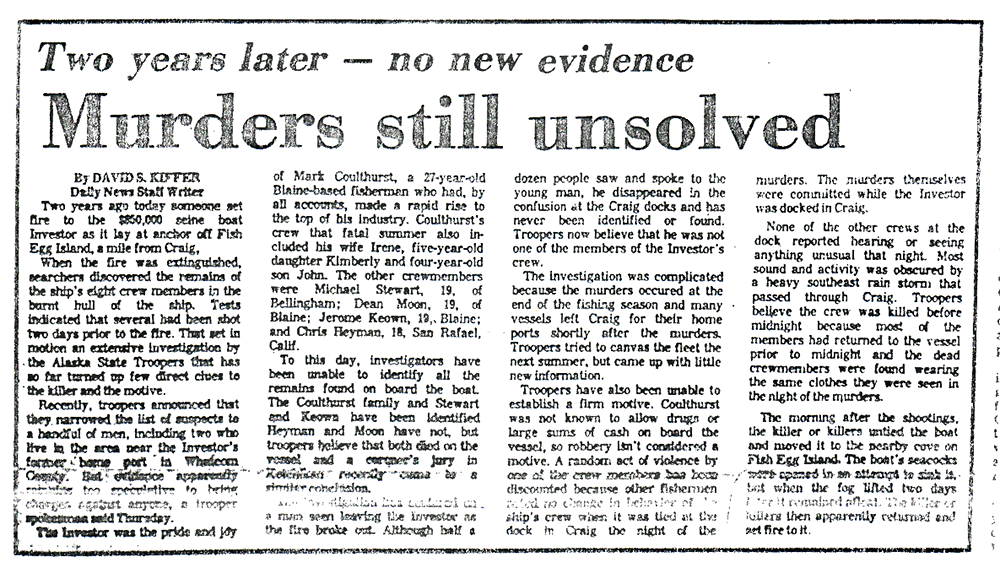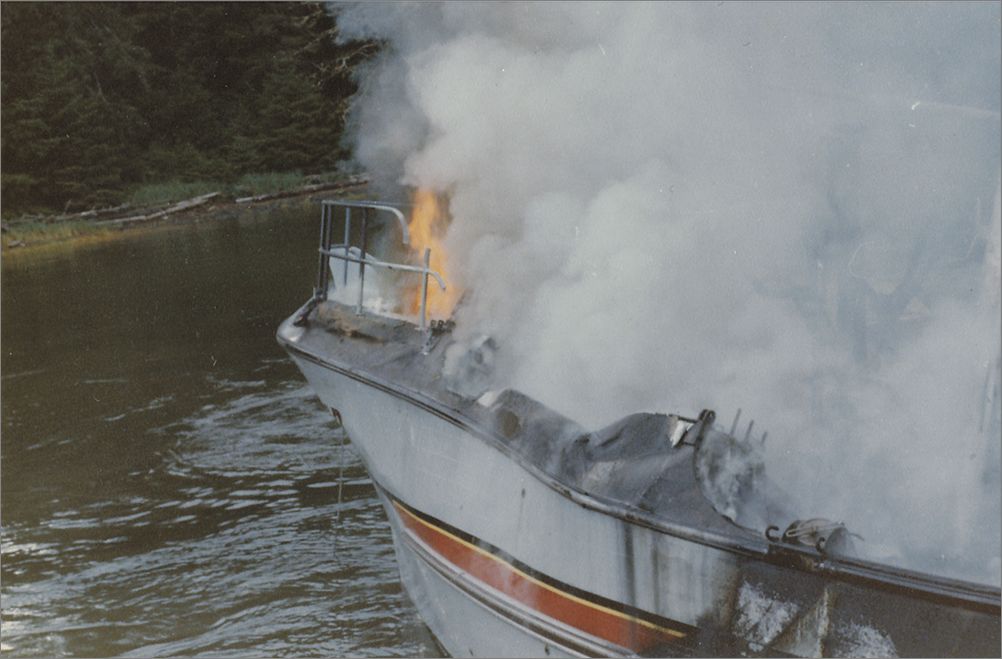Phillip Weidner took the defense allegations one step further when he presented a critique of alleged prosecutorial motives in the case against John Peel. Weidner charged that “the prosecution was frustrated after several years of inability to solve the crime, and thus rushed to judgment with a premature arrest of Mr. Peel on little or no evidence.” He noted that the most damaging testimony against his client — the “misstatements” provided by John Peel’s three crewmembers on the Libby 8 — was “not even available to the prosecution at the time they prematurely arrested Mr. Peel.”
In calling the arrest of John Peel a “mystery,” he said that “local counsel in Ketchikan, unconnected to the defense of Mr. Peel, have speculated that the arrest may have been precipitated by an article in the Ketchikan press chastising the prosecution for their inability to solve the crime. Said article apparently appeared not long before Mr. Peel’s arrest.”

And in one notable instance, Weidner managed to throw an entire series of buzz words into the same sentence, alleging that the prosecution had begun the “persecution of an innocent man,” to obtain an “indictment at any cost,” with “no regard for constitutional rights.” Clearly, he was aiming directly at the State’s motives.
Indeed, after repeating an elaborate version of the cocaine assassination theory –Mark Coulthurst had now been killed by “foreign enforcers” because of his extensive involvement in cocaine trafficking and his “failure to pay for cocaine that had been ‘fronted to him’ for distribution” — Weidner went on to suggest that the prosecution had ulterior motives for arresting John Peel.
”It may be that for well intentioned, but misplaced reasons,” Weidner suggested, “the prosecution felt that Mr. Peel was involved in the arson, or peripherally involved in the homicides, and that by arresting him and obtaining a grand jury indictment it would cause him to ‘inform’ on those more culpable.” [1]

Weidner concluded his full frontal assault by asserting that “the court should dismiss the indictment with prejudice or, in any event, dismiss and force the prosecution to make a fair and impartial presentation to the grand jury which, if submitted, will not re-indict.”
“Such a course,” he concluded, “would be in the best interest of all concerned since Mr. Peel, his attorneys, the Peel family, and other persons connected with the defense, sincerely hope that the true culprits will be pursued and that this senseless and cruel persecution of Mr. Peel will cease.”
[1] The allegation that John Peel acted as an accomplice to the “foreign enforcers” came directly from the jailhouse snitches. It is curious, therefore, that Weidner seems to be accepting the part of that “evidence” that points to Mark Coulthurst’s involvement in cocaine trafficking, but not the portion that implicates John Peel as an accomplice in the Investor murders.
Excerpts from the unpublished original manuscript, “Sailor Take Warning,” by Leland E. Hale. That manuscript, started in 1992 and based on court records from the Alaska State Archive, served as the basis for “What Happened in Craig.”
Copyright Leland E. Hale (2019). All rights reserved.

Order “What Happened In Craig,” HERE and HERE. True crime from Epicenter